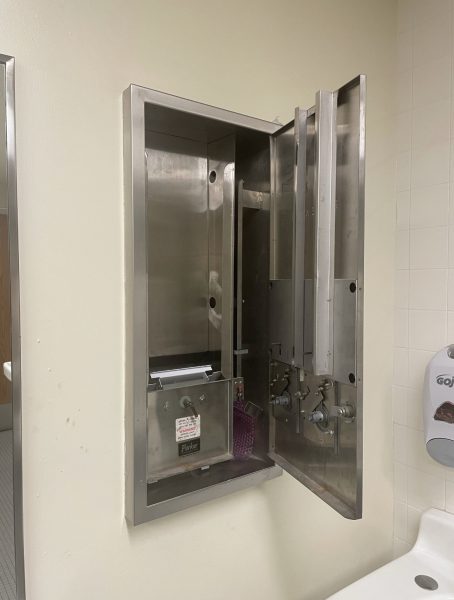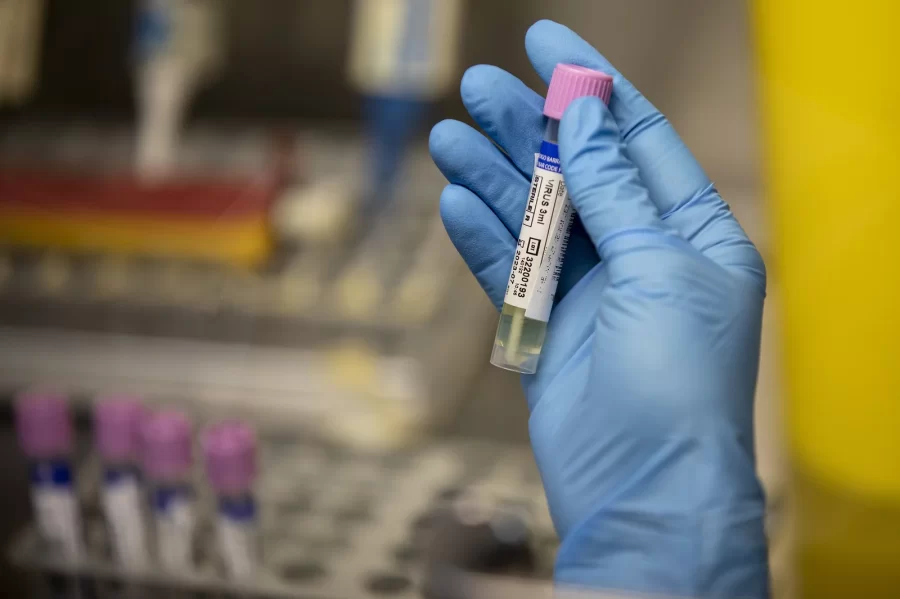Menstrual hygiene is a fundamental aspect of women’s health, yet it often remains a silent struggle for many individuals, especially those facing financial challenges. In recent years, universities across the United States have been taking steps toward addressing this issue by providing free tampons or tampon dispensers in campus restrooms. For example, in 2022, CSU Sacramento announced that it would provide free period products at over 145 dispensers installed in more than 30 buildings, in addition to those in the University Union, The WELL, and residence halls. Similarly, San Francisco State University has taken the initiative to provide menstrual hygiene products on its campus. California State University, East Bay (CSUEB) should be no exception, as it should recognize the importance of menstrual hygiene equity in fostering inclusivity and student well-being.

Catherine Garcia, a senior majoring in communication with a concentration in media production, faced unexpected challenges in the spring of 2023. Her family’s rented home caught fire, leaving them without a place to live and financially strained. With limited savings and a meager income, Catherine had to carefully allocate her funds for necessities like clothing, food, and gas. This financial strain led her to explore public restrooms for free personal hygiene items. Unfortunately, her quest for free tampons on the CSUEB campus proved fruitless.
Two other anonymous sources share similar experiences of needing tampons but not knowing where to access them on campus. This highlights a significant gap in awareness and accessibility for menstrual hygiene products at CSUEB. This lack of access can be a distressing and isolating experience for students who find themselves in unexpected financial crises or are simply in need. While some might assume that CSUEB does not address the issue, Teressa, a staff of the Student Health Center, reveals that the university has made strides to provide free tampons. These resources have been available at the student health center since the aftermath of the COVID-19 pandemic, but the problem lies in communication. Students need to be made aware of the tampon dispensers at the Student Health Center, and this lack of information perpetuates the issue of menstrual hygiene inequity on campus.

The experiences of Catherine Garcia, the anonymous students, and Teressa all underscore the importance of raising awareness about the availability of free tampons at CSUEB. It is clear that the university has taken steps in the right direction, but these initiatives must be well-publicized and maintained as some of these dispensaries are often empty. Let’s have them available to reach the students who need them most.



![Photo of fentanyl from the U.S. Drug Enforcement Administration (Photo courtesy DEA via Bay City News) [for education purposes only]](https://thepioneeronline.com/wp-content/uploads/2024/03/IMG_4583-1200x885.jpg)





![TIV 2 [Tornado Intercept Vehicle 2] February 7th, 2025, Twistex Memorial Site El Reno Oklahoma ©Emaline Becerra](https://thepioneeronline.com/wp-content/uploads/2025/04/IMG_0153-1200x800.jpg)










